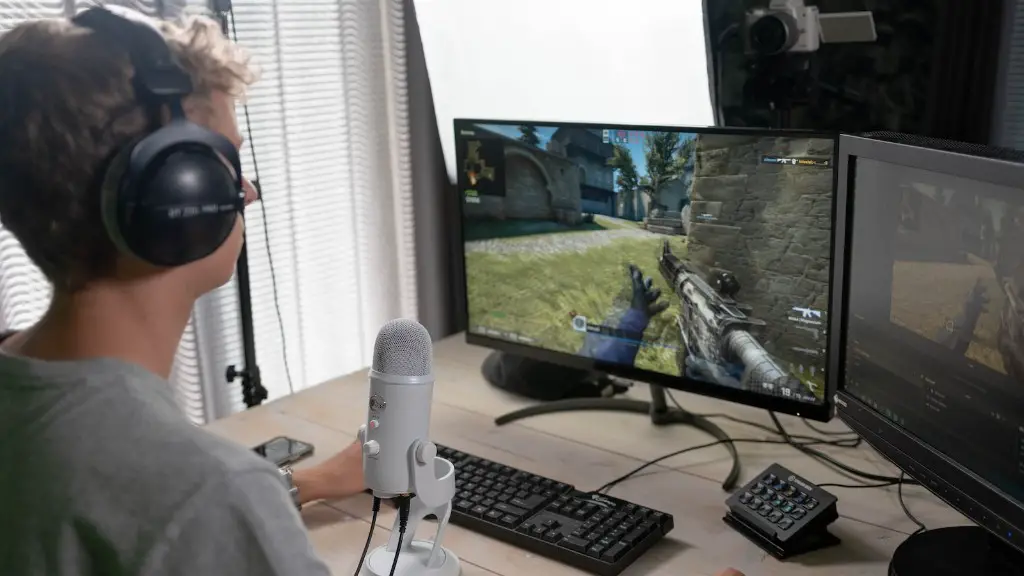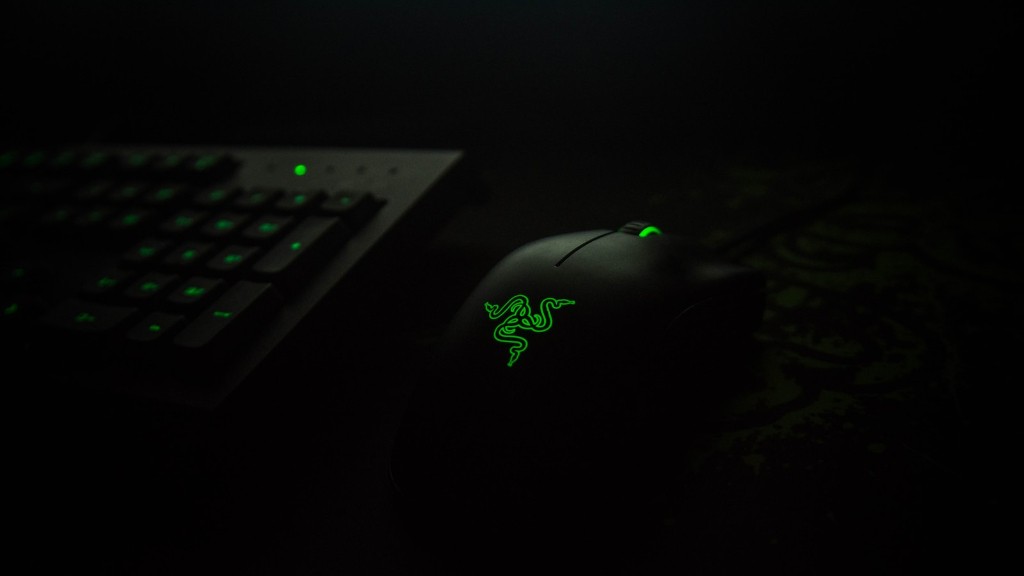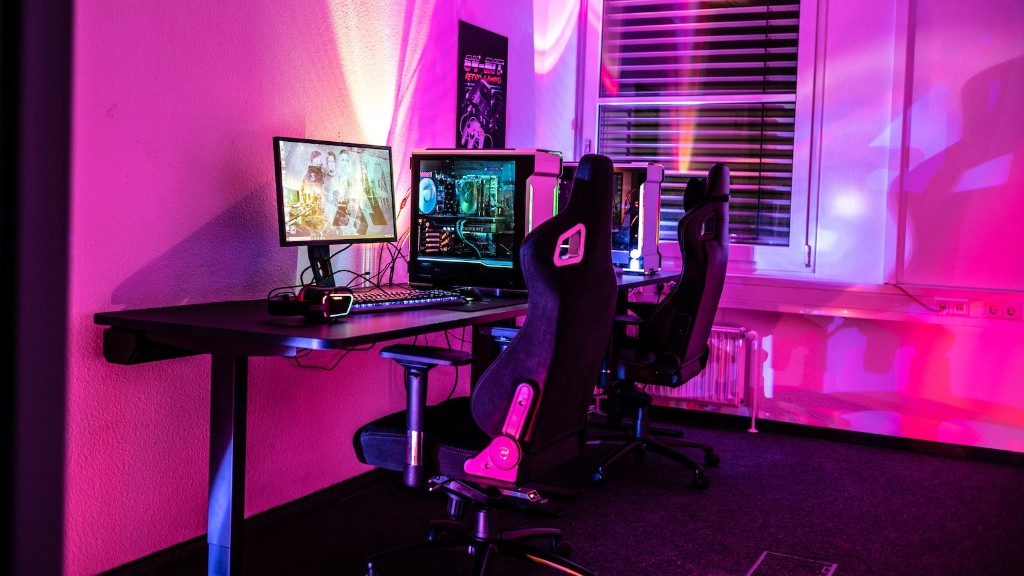A gaming PC is a powerful computer designed specifically for playing modern multimedia-heavy games at the highest possible resolution and graphical settings. As such, it needs to meet the exacting specifications required for a quality gaming experience. To achieve this, a good gaming PC should satisfy certain requirements; these include having a strong processor, ample memory, a capable graphics card, and lots of storage space. Here, we explain what specs make a good gaming PC.
Processor
The most important component of a gaming PC is the processor, also known as the Central Processing Unit (CPU). A CPU is responsible for executing instructions in a computer program, and a good processor offers fast performance, advanced features, and a large cache. The type of processor used in gaming PCs is usually an Intel Core i5 or AMD Ryzen 5 processor. To get an optimized gaming performance, look for a processor with a clock speed of at least 3GHz and 4-cores.
Memory
A gaming PC should also have sufficient memory or RAM. RAM acts as a ‘short-term memory’ for the PC; it stores the information it uses while performing tasks, so it needs to be readily accessible. The minimum recommended RAM capacity for a gaming PC is 8GB, with 16GB being the optimal capacity. To make sure your gaming PC is future-proofed, opt for memory that has a frequency of at least 3200MHz.
Graphics Card
The graphics card is another essential component of the gaming PC; it is responsible for creating the graphics and visuals you’ll see when playing games. One of the most important characteristics of a graphics card is its dedicated video memory, which should be at least 8GB. Pay attention to the clock speed and memory interface of the GPU too, with clock speeds of 1.4GHz to 1.8GHz and memory interfaces of 256-bit and above being ideal for gaming.
Storage
Finally, the gaming PC should provide enough storage for all your games. A good gaming PC will have at least 1TB of storage, but it’s ideal to go for 2TB or more, especially if you want to store a lot of files. You should also consider the type of storage: a gaming PC should have an SSD. This will give you improved read and write speeds, as well as faster access to stored data.
Motherboard
The motherboard is a fundamental component of the gaming PC and it holds all the main components together. An optimal gaming PC needs to have a motherboard that supports the other components, such as the processor, the RAM, and the graphics card. Look for motherboards with at least four RAM slots and multiple USB 3.0 ports. Additionally, the motherboard should have an SLI bridge and an M.2 slot for faster storage and quieter cooling.
Power Supply
Your gaming PC will require a lot of power and you must select the right power supply in order to maintain a stable performance. The ideal power supply should be at least 600 watts and should come from a reputable brand. It should also have Haswell support and Active PFC (Power Factor Correction) for better power efficiency and noise reduction.
Peripherals
Aside from the components for your gaming PC, you should also consider buying accessories that can help enhance your gaming performance. These include a gaming headset, a gaming mouse, a gaming keyboard, and a gaming monitor. A gaming keyboard should have macro keys and custom backlighting, while a gaming monitor should have a refresh rate of at least 144Hz and AMD FreeSync or Nvidia G-Sync support.
Cooling and Noise Reduction
To get the best performance out of your gaming PC, you should consider adding additional cooling solutions and noise reduction solutions. Options such as liquid cooling, air cooling, and noise dampening products are essential to ensure your gaming PC can run at its peak performance. This is especially important if you are overclocking the CPU or GPU.
Power Savings
A gaming PC uses a large amount of power and if you’re not careful, you may find yourself with an expensive electricity bill. There are some solutions to help you save on power, such as using power saving tools and turning off power hungry components when not in use. Additionally, you can opt for a graphics card with low power consumption; the Nvidia GTX 960 or AMD R7 370 are both power efficient graphics cards.
Conclusion
As you can see, a good gaming PC needs to have specific components in order to ensure a top performance. A strong processor, ample memory, a capable graphics card, and lots of storage are essential. Additionally, you should consider buying accessories such as a gaming headset and a gaming monitor, cooling solutions, and power saving solutions. All of these features will guarantee an enjoyable gaming experience.


